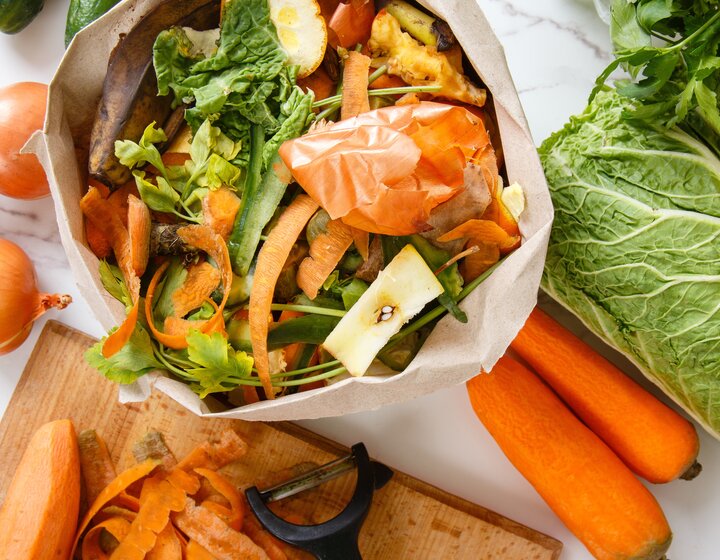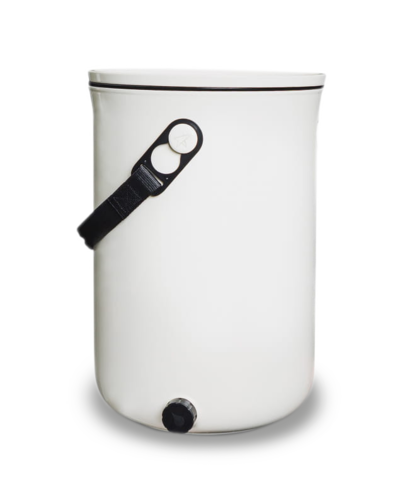Your benefits with Bokashi compost

Effective utilisation of biowaste
Kitchen waste is transformed into valuable fertiliser. This conserves resources and promotes sustainable gardening.

Reduced odours through fermentation
Fermentation in the Bokashi bucket means there are hardly any unpleasant odours. So your kitchen always stays fresh and clean.

Uncomplicated production and application
Bokashi compost is easy to make and use. Not a complicated process, but simple and quick for everyone.
Everything you need to make Bokashi fertiliser
Create your own Bokashi compost with ease

1. chop up kitchen waste
Cut your kitchen waste such as vegetable and fruit scraps into small pieces. This makes fermentation easier and improves the availability of nutrients in the fertiliser.
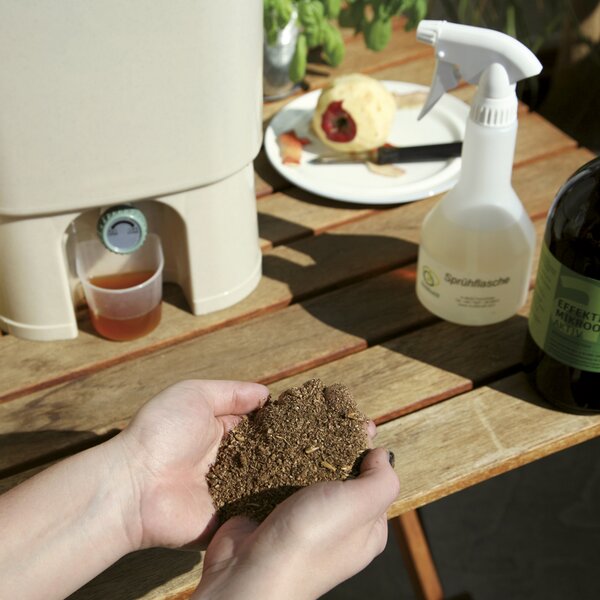
2. start the fermentation process
Sprinkle the shredded waste evenly with dried Bokashi or RoPro litter. These special microorganisms not only promote fermentation, but also prevent putrefaction and unpleasant odours.
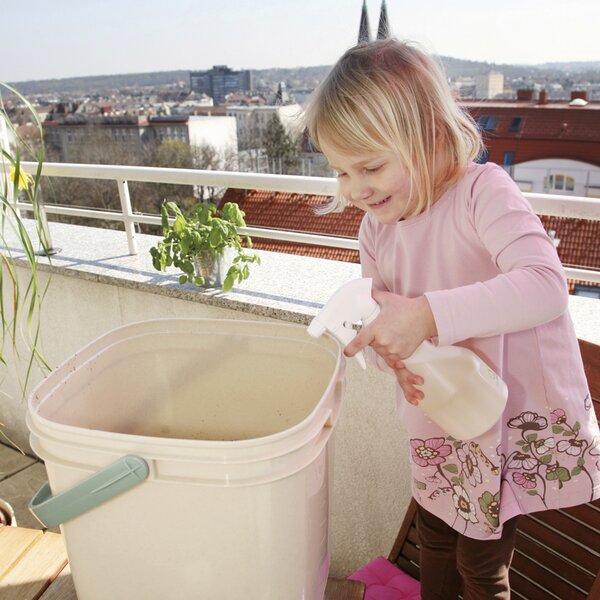
3. spray compost
Spray the layers of waste in the bucket with compost starter to further support the fermentation process.
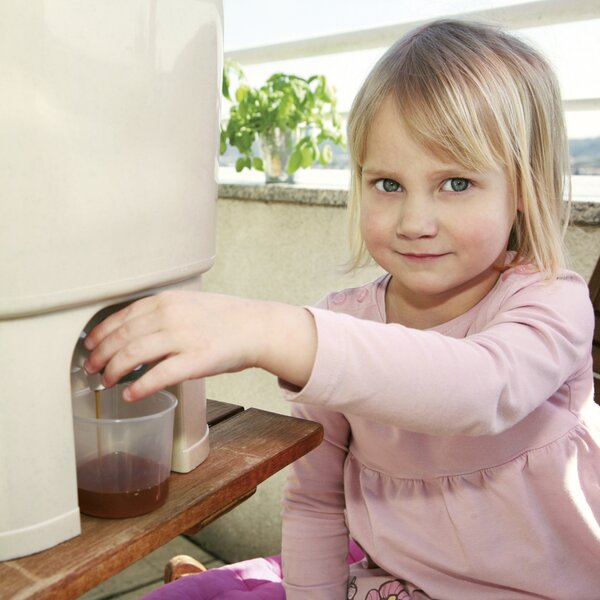
4. drain liquid fertiliser
After about two to four weeks of fermentation, you can drain the home-made liquid fertiliser (seepage) through the drain tap and use it for your plants. Dilute the liquid in a ratio of 1:200 (1 ml liquid to 200 ml water) and use it as a Bokashi fertiliser.
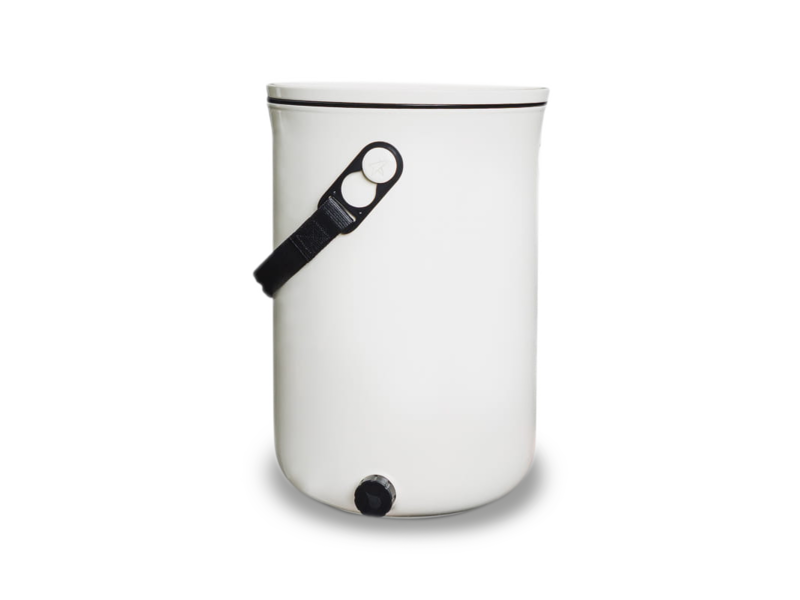
Optimise your biowaste recycling with Organko
Efficiently recycle your daily organic waste with the Organko Bokashi household bucket. With a capacity of 9.6 litres, it is ideal for collecting and fermenting kitchen waste. The airtight bucket accelerates fermentation and minimises odours.
Bokashi » Secret weapon for healthy soil & bountiful harvests
What sauerkraut, kimchi & co. are to us humans, bokashi is to the soil. The Japanese method uses Effective Microorganisms and fermentation to transform kitchen waste into high-quality organic Bokashi fertiliser. The resulting natural fertiliser is valuable for soil fertility and plant growth in the garden and on the balcony.
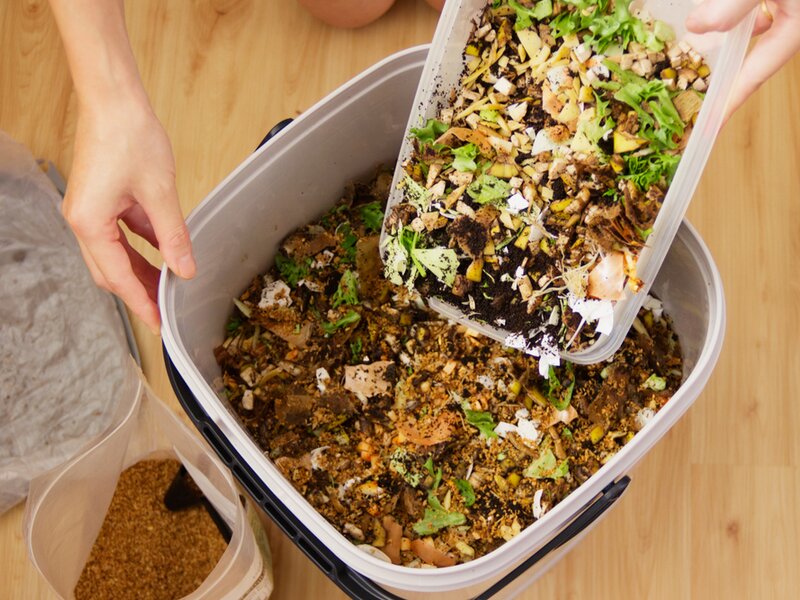
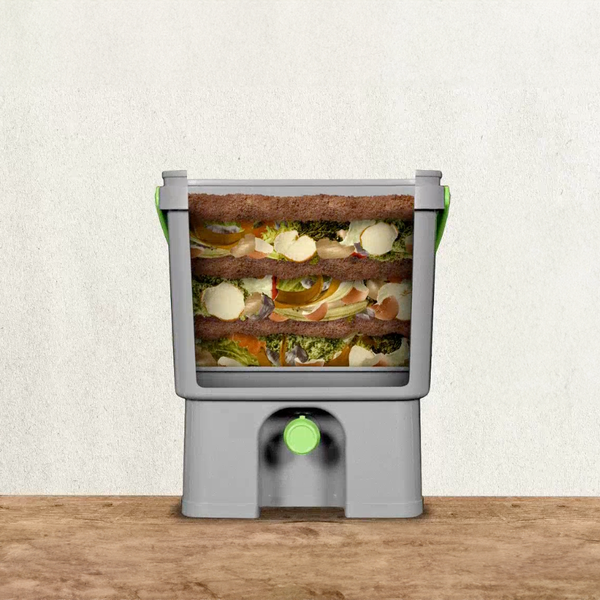
How does the production of Bokashi work?
In conventional composting, garden waste is broken down slowly by oxygen-loving microorganisms. With bokashing, on the other hand, the organic waste is very quickly converted into fertiliser through fermentation. This produces valuable vitamins and antioxidants that stimulate soil life and boost the plants' immune system.
Bokashi is produced using a special bokashi bucket in which the organic kitchen waste is layered and enriched with bokashi microorganisms. Kitchen waste such as fruit or vegetable scraps can be used as well as coffee grounds, tea bags, lawn clippings or wilted flowers.
How to turn your compost into a nutrient miracle in the garden
Step-by-step instructions:
- Layer the collected materials (3-5 cm) in a composter either pure or diluted with compost starter (1 litre of compost starter per m³), depending on the moisture content.
- Make sure to cover everything airtight, ideally with light-coloured composting film. This will ensure successful fermentation without oxygen.
- As the Bokashi compost has an acidic pH value, we recommend not planting or sowing until 2 weeks after the fertiliser has been applied. Alternatively, you can also bury the fresh Bokashi about 30 cm away from the plants.
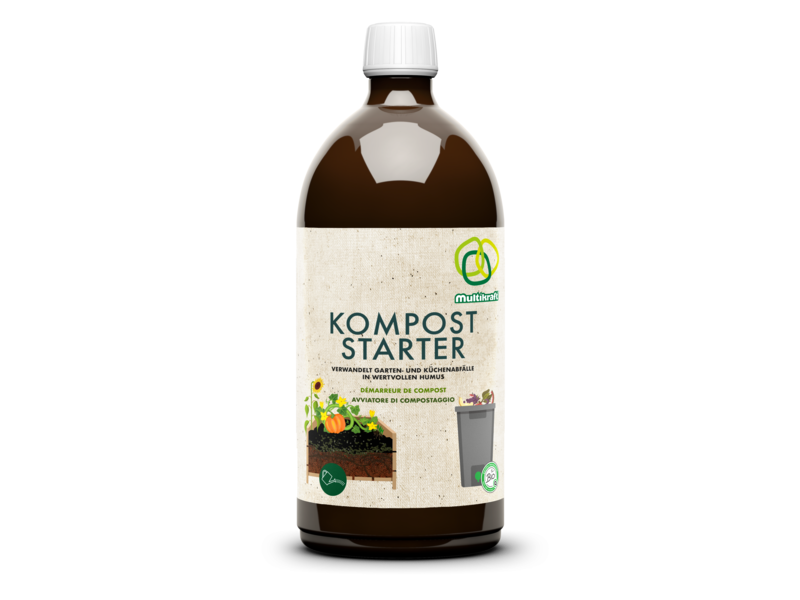
Do you still have questions?
Are you interested in one of Multikraft's products, but are still unsure and would like to find out more?
Our experts will be happy to help you!

